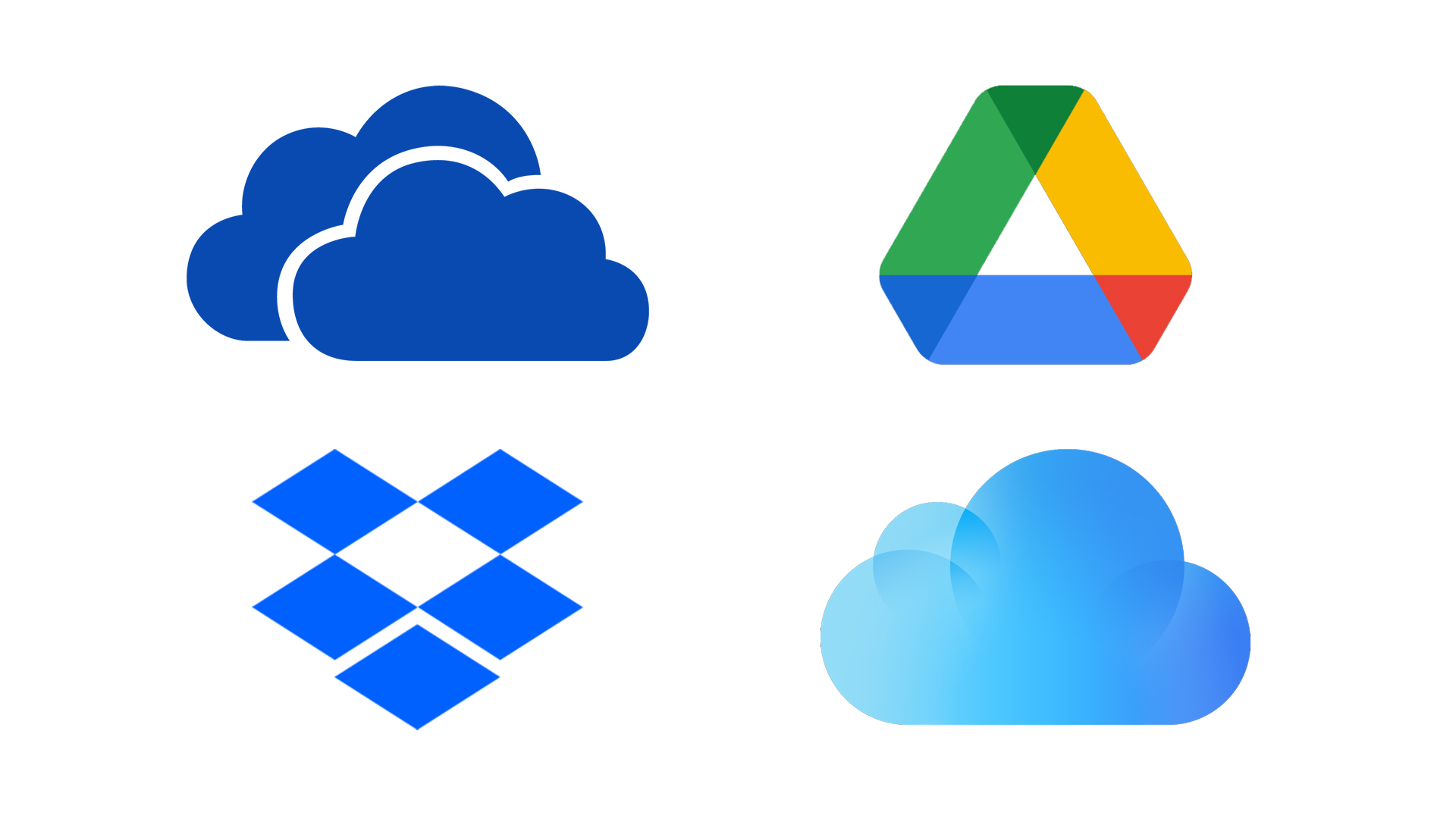What is cloud storage? How it works and why your business can benefit
Save time and money when you store your data on the cloud

Here at Tom’s Guide our expert editors are committed to bringing you the best news, reviews and guides to help you stay informed and ahead of the curve!
You are now subscribed
Your newsletter sign-up was successful
Want to add more newsletters?

Daily (Mon-Sun)
Tom's Guide Daily
Sign up to get the latest updates on all of your favorite content! From cutting-edge tech news and the hottest streaming buzz to unbeatable deals on the best products and in-depth reviews, we’ve got you covered.

Weekly on Thursday
Tom's AI Guide
Be AI savvy with your weekly newsletter summing up all the biggest AI news you need to know. Plus, analysis from our AI editor and tips on how to use the latest AI tools!

Weekly on Friday
Tom's iGuide
Unlock the vast world of Apple news straight to your inbox. With coverage on everything from exciting product launches to essential software updates, this is your go-to source for the latest updates on all the best Apple content.

Weekly on Monday
Tom's Streaming Guide
Our weekly newsletter is expertly crafted to immerse you in the world of streaming. Stay updated on the latest releases and our top recommendations across your favorite streaming platforms.
Join the club
Get full access to premium articles, exclusive features and a growing list of member rewards.
You may be well aware of the term, but unaware of exactly what it means - so, what is cloud storage? Essentially, cloud storage is a way of storing data off-premise simply and securely. You’ve probably already heard of the major players like Google Drive and Dropbox, but this is just the tip of the iceberg.
With cloud storage, your data is stored on servers housed in third-party data centers. Cloud storage takes away the requirement to purchase physical data storage solutions, and instead enables you to store your data with a third party, often at a much-reduced cost.
There are several business benefits to cloud storage, including cost efficiency, security, accessibility, and scalability, and there's a range of the best cloud storage providers available, depending on your needs. Read on to learn more.
Cost efficiency

From a business perspective, cloud storage is a very attractive alternative to traditional data storage, such as on-premise servers and portable hard drives, because it is far more affordable.
Buying the equipment to store data on can be very expensive - especially if your organization is data-driven, and collects a lot of data. A cloud storage service enables you to rent storage space at a far lower cost. Many businesses will benefit from this flexibility.
However, you don't just save money by forgoing the purchase of expensive hardware. This hardware requires maintenance and IT staff to run it too. Removing the requirement for a dedicated IT team can result in huge savings. On top of this, cloud storage is an easy cost to manage. When you deal with hardware on premises, there is no telling when or if it will fail.
A maintenance bill could come at any time, and knowing when to replace the equipment is relatively difficult to predict too. With a cloud storage subscription, you can calculate exactly how much you will need to spend each month to keep the service active, and factor that cost into your business expenses.
Get instant access to breaking news, the hottest reviews, great deals and helpful tips.
Scalability
Another major draw to cloud storage solutions is the ability to scale the service depending on your needs. Many businesses may want to start small in terms of data storage, and increase the size of their solution as they grow. Scalability is a major consideration for businesses in all sectors, and along with factors like the number of staff members and the size of business premises, data storage must be scalable too.
If you commit to on-premise solutions, scaling up can be incredibly expensive - and, once you purchase the equipment and employ the staff to maintain it, scaling down is very difficult too. You are committed to your original expenditure. On the other hand, cloud storage providers enable you to scale your data storage solutions up or down depending on your needs and requirements. Read our comparison feature pitting on-prem vs cloud storage to learn more about the two formats and how they compare.
What’s more, the amount of storage available in the cloud is almost limitless. So, you can be certain that no matter how much data you collect, you won’t run out of storage space - providing you can pay for it.
Availability

As well as simplifying your data storage, a cloud storage provider will make your data more accessible, too. Data stored in the cloud can be accessed at any time from anywhere, and by anyone with the authorized credentials to do so.
This brings tremendous flexibility to your organization, and means you don't have to be in the office to access the data you need. With most cloud storage providers, files are always up to date and can be accessed from any compatible device: be that a desktop computer, laptop, tablet, or smartphone.
As more and more people begin to work remotely, the option to be able to access data on the go will become even more of a benefit to businesses. Another benefit is centralization of your data. Instead of having your data distributed over multiple locations, everyone in your organization is able to locate the information they need quickly and easily.
Collaboration is a key factor in modern, data-driven businesses, and the ability to collaborate in real time on a working document is made possible with some, but not all cloud storage providers. Instead of passing a document from one colleague to another and dealing with versioning, entire teams can collaborate on a single document at once and ensure nothing is lost, because the content is stored remotely in the cloud.
Most providers of cloud storage also guarantee uptime, usually to a huge degree such as 99.9%. The same can’t normally be said for servers maintained in-house. When an in-house data storage system fails, there could be significant downtime, and the effects on a business can be very damaging.
Enterprise-grade security
No matter how much time and money you pour into an on-premise security solution for your data storage, it's unlikely to match the security of a cloud data storage provider. The top cloud storage services offer a level of security that's hard to beat.
With so much data in their possession, security is a top priority for many cloud storage providers, and securing against the most advanced cyber threats enables them to outdo the competition. However, the level of cybersecurity defense employed by a cloud storage provider to protect data from direct hacks, viruses, and other cyber attacks isn't the only security provision in place.
By its very nature, a cloud storage solution is more secure than an on-premise alternative because the data stored is spread over multiple servers, meaning there is no single point of failure.
Furthermore, when you store your data remotely in the cloud, you take away the risk of any of your on-premise equipment being stolen or damaged. Many cloud storage providers go to the lengths of employing full-time security guards to protect their servers, so you can rest assured your data is in good hands.
Another area of security that a cloud storage solution covers is risk mitigation, in regards to compliance. As well as the EU’s General Data Protection Regulation (GDPR), there are many other data privacy laws and regulations that prohibit the misuse of customer data. The results of falling foul of these regulations are severe, and can cost your company millions of dollars in fines, as well as making your customer data vulnerable to interception by malicious actors.
However, a cloud storage provider usually promises to abide by these laws, in particular the GDPR, so you can safely determine that your data is being handled correctly. Read our comparison of leading providers and how secure their cloud storage is, as well as what to look for in secure cloud systems, to find out more.
Conclusion
There are a wide range of benefits to choosing cloud storage over traditional hardware solutions. You'll save money, make your data more accessible, scale with ease, and benefit from increased security. It makes business sense to make the switch from on-premise alternatives, especially if you deal with a lot of data.
With a better understanding of cloud storage technology, you can optimize the storage solution you need to run your business more effectively. Whichever provider you decide to go with, make sure you do your due diligence and find a service that suits your specific needs and requirements.
Kieron is a freelance science and technology journalist with more than a decade of experience writing for magazines in print and online. Today, his focus is on cybersecurity, blockchain, and emerging tech. He also has a passion for social affairs, arts and culture and travel writing, and recently launched a new publication covering social activism and the volunteering sector.
 Club Benefits
Club Benefits











